Related Research Articles

Laos, officially the Lao People's Democratic Republic, is a socialist state and the only landlocked country in Southeast Asia. At the heart of the Indochinese Peninsula, Laos is bordered by Myanmar and China to the northwest, Vietnam to the east, Cambodia to the southeast, and Thailand to the west and southwest. Its capital and largest city is Vientiane.

The economy of Laos is a lower-middle income developing economy. Being one of the socialist states, the Lao economic model resembles the Chinese socialist market and/or Vietnamese socialist-oriented market economies by combining high degrees of state ownership with an openness to foreign direct investment and private ownership in a predominantly market-based framework.

The First Thai–Lao Friendship Bridge is a bridge over the Mekong, connecting Nong Khai Province and the city of Nong Khai in Thailand with Vientiane Prefecture in Laos; the city of Vientiane is approximately 20 km (12 mi) from the bridge. With a length of 1,170 meters (0.73 mi), the bridge has two 3.5 m -wide road lanes, two 1.5 m -wide footpaths and a single 1,000 mm gauge railway line in the middle, straddling the narrow central reservation.

Wattay International Airport is one of the few international airports in Laos and the country's main international gateway, serving the capital Vientiane, located 3 km (2 mi) outside of the city centre. A larger domestic terminal was constructed in 2018 and connected to the international terminal. There is a Lao Air Force installation at one end of the airport.
For solar power, South Asia has the ideal combination of both high solar insolation and a high density of potential customers.
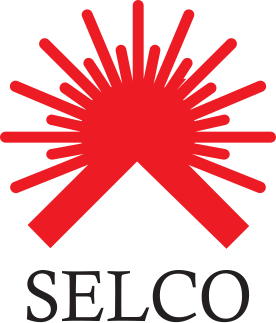
SELCO Solar Light Pvt. Ltd. is a for-profit social enterprise based in Bangalore, India. SELCO has played an instrumental role in improving living standards of poor households in rural India especially in the state of Karnataka through solar energy based interventions and low smoke cook stoves. In recognition of the services towards reduction of the gap in access to energy, SELCO has been awarded the prestigious Ashden Awards twice, in years 2005 and 2007. SELCO India was founded in 1995 by Dr.Harish Hande an alumnus of IIT Kharagpur with INR 15,000 funding from its co-founder Mr. Neville Williams. SELCO India has installed solar light systems in 350,000 houses till date.
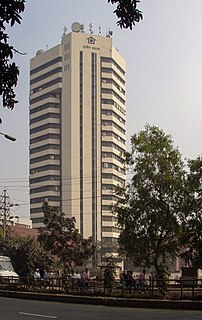
The Grameen family of organizations has grown beyond Grameen Bank into a multi-faceted group of profitable and non-profit ventures, established by Muhammad Yunus, the Nobel Peace Prize winning founder of Grameen Bank. Most of these organizations have central offices at the Grameen Bank Complex in Mirpur, Dhaka, Bangladesh. The Grameen Bank started to diversify in the late 1980s when it started attending to unutilized or underutilized fishing ponds, as well as irrigation pumps like deep tubewells. In 1989, these diversified interests started growing into separate organizations, as the fisheries project became Grameen Fisheries Foundation and the irrigation project became Grameen Krishi Foundation.
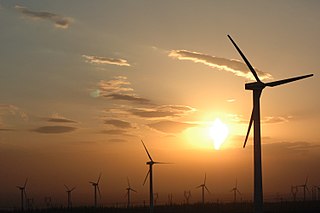
Renewable energy in developing countries is an increasingly used alternative to fossil fuel energy, as these countries scale up their energy supplies and address energy poverty. Renewable energy technology was once seen as unaffordable for developing countries. However, since 2015, investment in non-hydro renewable energy has been higher in developing countries than in developed countries, and comprised 54% of global renewable energy investment in 2019. The International Energy Agency forecasts that renewable energy will provide the majority of energy supply growth through 2030 in Africa and Central and South America, and 42% of supply growth in China.

SolarAid is an international development charity which is working to create a sustainable market for solar lights in Africa. In line with the Sustainable Development Goal 7: "Ensure access to affordable, reliable, sustainable and modern energy for all", the organisation's aim is to reduce global poverty and climate change through providing access to solar lights for rural communities. SolarAid wholly owns the social enterprise, SunnyMoney, the largest seller of solar lights in Africa. SolarAid was founded by Solarcentury, a solar energy company based in the UK.
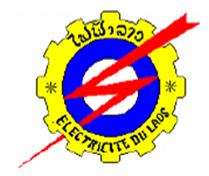
Électricité du Laos(EDL) is the state corporation of Laos that owns and operates the country's electricity generation, electricity transmission and electricity distribution assets. The company also manages the import and export of electricity from the national electricity grid of the country. EDL was founded in 1959 and is headquartered in Vientiane.

ECAMI is a renewable energy business based in Nicaragua, selling solar PV, wind power and hydroelectric systems. ECAMI was founded in 1982 by Luis Lacayo Lacayo, to supply radio communications equipment in rural areas of Nicaragua where infrastructure had been destroyed during the prolonged civil conflict and revolution. Photovoltaics (PV) were the ideal way of powering this equipment, because there was no grid electricity. Many other opportunities for PV became apparent to Lacayo, like home lighting, battery-charging, water pumping and refrigeration. Over the years the provision of renewable energy systems became more important than communications and is now the main activity of ECAMI.

Vientiane is the capital and largest city of Laos. Vientiane is divided administratively into 9 cities with a total area of only approx. 3,920 square kilometres and is located on the banks of the Mekong, close to the Thai border. Vientiane was the administrative capital during French rule and, due to economic growth in recent times, is now the economic center of Laos. The city had a population of 948,477 as of the 2020 Census.
E+Co is a non-governmental organization based in Bloomfield, New Jersey, United States, that from its founding in 1994 to its restructuring in 2012 made over 250 clean energy investments in developing countries. Over these 18 years, E+Co maintained field offices in San Jose, Costa Rica, Bangkok, Thailand, Dar es Salaam, Tanzania and Accra, Ghana. The company's name is pronounced, "E and Co".

Thanaleng station, also known as Dongphosy station, is a railway station in Dongphosy village, Hadxayfong District, Vientiane Prefecture, Laos. It is 20 km (12 mi) east of the Lao capital city of Vientiane and 4 km (2.5 mi) north of the Lao-Thai border on the Mekong River. The station opened on 5 March 2009, becoming part of the first international railway link serving Laos. Originally intended for use as a passenger station, Lao officials have stated their intention to convert it to a rail freight terminal to provide a low-cost alternative to road freight, the main mode of transport for goods entering Thailand. The station provides a connection between Vientiane and the capital cities of three other ASEAN nations: Thailand, Malaysia, and Singapore, and several major Southeast Asian ports.
The Houay Ho is a dam located in the Samakkhixay District of Attapeu Province, Laos, 160 km (99 mi) east of Pakse and 30 km (19 mi) northwest of Attapeu. The project is considered the first privately financed joint venture 'build-operate-transfer' (BOT) hydropower project in Laos. It has installed capacity of 152.1 megawatts (204,000 hp), almost all of which is exported to Thailand.
This page describes energy and electricity production, consumption and import in Laos.

Vientiane province is a province of Laos in the country's northwest. As of 2015 the province had a population of 419,090. Vientiane province covers an area of 15,610 square kilometres (6,030 sq mi) composed of 11 districts. The principal towns are Vang Vieng and Muang Phôn-Hông.
The Uganda Energy Credit Capitalisation Company (UECCC) is a company owned by the government of Uganda. It is responsible for coordinating funding from the Ugandan government, international development partners and the private sector, to invest in renewable energy infrastructure in Uganda, with emphasis on the promotion of private sector participation.
PEG Africa is a for profit corporation, financing and deploying solar power to households and SMEs in West Africa. The company provides loans for pay-as-you-go (PAYG) solar power home systems and solar water irrigation to customers that do not have access to an electrical grid. The loans are repaid by customers in small increments, using mobile payments. The solar power home systems can be used by customers as collateral for loans on further products and services.
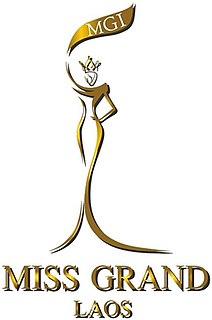
Miss Grand Laos is an annual female national beauty pageant of Laos, founded by Miss Laos Company Limited in 2017. The winner of which represents the country at its parent contest Miss Grand International. Since 2019, the franchise of the contest has belonged to Prime Modeling Agency which is managed by Saikeo Sidavong.
References
- ↑ Sunlabob, 'What is Sunlabob?'
- ↑ Sunlabob, 'News'
- ↑ Sunlabob, 'Contact us'
- ↑ Ashden Awards. "Ashden Awards case study on Sunlabob" . Retrieved 2009-01-16.
- ↑ "Home". worldcsrday.com.